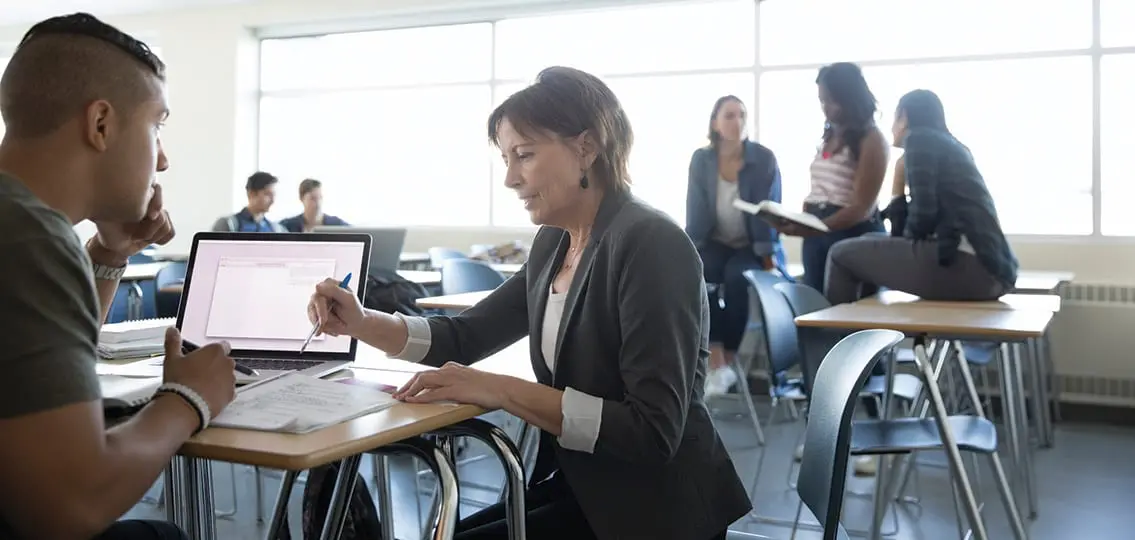My daughter Annie was six when she was diagnosed with a learning disability. Her idea of a coping strategy at that age was to have her older sister read for her. Now that she’s in seventh grade, we’ve all come a long way in learning how to help her advocate (and read) for herself. Still, I know we have more work ahead of us as the college years approach.

I’ve been Annie’s main advocate as we’ve created her yearly Individualized Education Program (IEP), the written plan for public school children who qualify for special education services. Throughout middle and high school, we’ll continue to have IEP team meetings with her case manager and teachers. We can adjust her accommodations for dyslexia, dyscalculia (a math learning disability), and slow processing speed.
However, disability services change in college.
IEPs and 504 plans (another kind of educational accommodation) from high school are no longer valid. Once a student turns 18 years old, federal law changes with regard to disability services, says Kevin Feisthamel, director of counseling, health, and disability services at Hiram College in Ohio.
College students are responsible for requesting their own accommodations. “The onus is on the student to be proactive in college. Students work with the campus disability office to figure out accommodations based on each student’s particular learning disabilities,” says Feisthamel.
Based on the student’s documentation of a disability, Feisthamel provides an accommodations letter. This spells out the services the college will provide for them. In turn, the student hands this letter to each of their professors. Feisthamel advises parents to explain this system to their child in high school, while helping them learn self-advocacy skills, too.
Now is the time to prepare students like Annie to take ownership of their learning issues.
To become self-advocates, teens must learn what they need to be successful and practice asking for it, says Elizabeth Hamblet, author of From High School to College: Steps to Success for Students with Disabilities.
3 Ways to Help Your Teen Self-Advocate in College:
1. Explain in detail what you’ve been doing.
Explain to your student how you are advocating for them prior to college. “Be specific. Say, ‘Here are the accommodations we have in place for your ADHD,’ and explain why you think it is helpful to them,” she says. “At the end of every quarter, ask if they’re using the accommodations or if there’s something else that might help them learn better.”
2. Talk to them about what to do if there is a problem.
Parents should coach their student about how to talk to their teacher or case manager if they have a problem at school. This will help prepare them for potential situations they may encounter in college.
3. Reinforce the importance of working hard now.
Still, prepping your kid for college is mostly about making them academically ready for college, says Feisthamel.

The goal throughout the high school years should be for the student to gradually transition to handling all their own work independently. “Kids with learning differences should know if they put the effort in now, and seek help when needed, they will succeed at college,” says Hamblet.
Resources for Families:
Families may also find these resources helpful in supporting a student with learning differences:
- The book Homework Made Simple: Tips, Tools, and Solutions to Stress-Free Homework by Ann Dolin
- The SQ3R Reading Method, which helps kids learn how to read for comprehension
- Understood.org, an online resource and community supporting parents of kids with learning and attention issues





